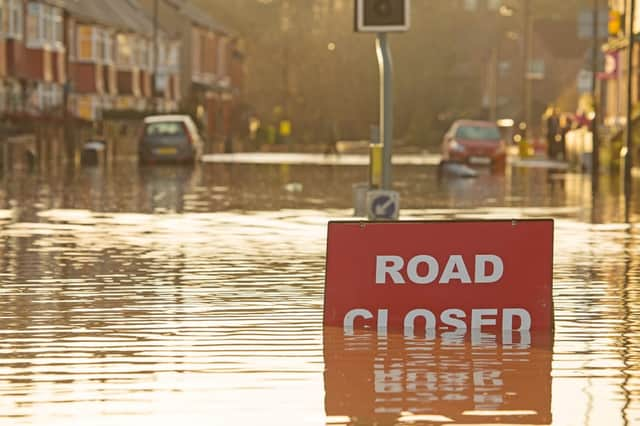These are your legal rights if you can’t get to work because of bad weather and flooding


The UK has been inundated with storms and heavy flooding this week, after Storm Dennis swept across the country on Sunday (16 Feb), and more bad weather looks to be on its way.
The storm caused damage to roads and rail networks, as well as widespread flooding, leaving many struggling to go about their day-to-day lives - especially when it came to getting to work.
What happens if I can’t get to work?
Advertisement
Advertisement
Adverse weather conditions can cause significant disruption, particularly when it comes to travel, resulting in delays or the inability to get out and about at all.
But what happens if you can’t get into work because of bad weather or flooding?
Simon Roberts, from DAS Law, explains, “There is no law which says that an employer must pay an employee who can’t get to work due to travel disruption or adverse weather conditions.
“Of course, it may state in their employment contract that they will be paid under these circumstances, in which case employers must honour this.
Advertisement
Advertisement
“It is usually not possible (or advisable) to force an employee to use up annual leave for any days they miss due to travel issues, although employees may wish to nominate a day as annual leave rather than not receiving any payment for it.”
Will I still be paid?
“It is legal not to pay staff who are unable to get into work - subject to what is written in their contract - but it is usually best to be flexible in these situations and consider in each case whether or not to pay employees in these circumstances”, Roberts says.
“Bad weather is an obstacle which is outside of anyone’s control and it is inadvisable for employers to create incentives for employees to risk their safety attempting to get to work in poor conditions.”
What about school closures?
Schools can often be closed when bad weather strikes, forcing many employees to have to stay home from work to look after their children.
Advertisement
Advertisement
If a school was closed at short notice, this would likely constitute an emergency relating to a dependant, in which case the employee would be entitled to take time off to arrange care for their children.
In this case, this type of leave does not have to be paid. However, your employer may choose to adopt a different policy.
What if my office is closed?
“If your employer has closed the office because it is inaccessible, or not enough staff are able to make it in, they should usually still pay employees for that day,” explains Roberts.
“Withholding pay when employees are unable to work through no fault of their own could be an unauthorised deduction from wages or a serious breach of their contract of employment. In those circumstances, employees may be able to bring a legal claim against the company for non-payment of the wages and any losses.”
Advertisement
Advertisement
However, some employment contracts do contain a temporary ‘lay-off’ clause. If this is the case, employers can refuse to give the full amount of pay to employees for a limited time and for days when the workplace is not open.
What should employers do?
As travel disruption is likely to occur reliably year after year, it is recommended that employers put a policy in place covering what is expected of employees if the weather prevents them from getting to work.
This will help to ensure there is no confusion regarding non-attendance and how it will be treated during bad weather.
In cases where businesses regularly suffer from widespread travel issues, or they are particularly exposed in poor weather conditions, Roberts recommends adopting a policy of allowing working from home, or other off-site alternatives, if the nature of the work allows it.